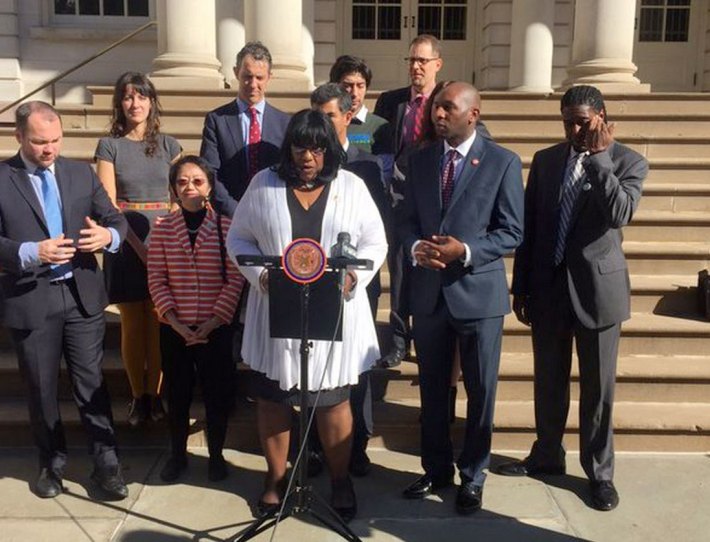
The City Council has become the strongest source of political momentum for the Move New York toll reform plan. Today the council's Progressive Caucus announced its support for Move NY, with 14 of the bloc's 19 members voting to endorse, according to the Daily News.
The key to enacting toll reform is Governor Cuomo, who has dismissed the plan as a political impossibility. While the City Council can't pass a saner toll system on its own, every endorsement of Move NY from an elected official undermines Cuomo's contention that there's no political appetite for it.
A guiding principle of the Move NY plan, which would put a consistent price on driving to the city core while lowering the price of bridges farther out, is to have Manhattan residents contribute a proportionally greater share than residents of other boroughs. This seems to be paying off, with endorsers on the Progressive Caucus representing districts all over the city. They come from northern Staten Island (Debi Rose), southeast Queens (Donovan Richards), the central Bronx (Ritchie Torres), northern Manhattan (Ydanis Rodriguez), and many districts in between.
One holdout on the caucus was eastern Queens rep Daneek Miller, who called toll reform "a regressive tax and an undue burden on low and middle-income families." This is the line against road pricing that was deployed ad nauseam by former Westchester Assembly Member Richard Brodsky, who represented the region's wealthiest car commuters. It wasn't true in 2007 and it's not true today -- the people who would pay more under Move NY earn far more, on average, than the transit-riding New Yorkers who stand to benefit the most.
It's hard to think of a system more regressive than the one we have now, where affluent car commuters can drive for free into the congested core of Manhattan, slowing down trips for fare-paying bus riders -- all while the MTA takes on more debt that crowds out funding for service and threatens to send the price of a transit trip soaring.
When Richard Brodsky was playing the populist demagogue against congestion pricing, there was no organized progressive political force to counteract that message. With today's endorsement, that's no longer the case.





